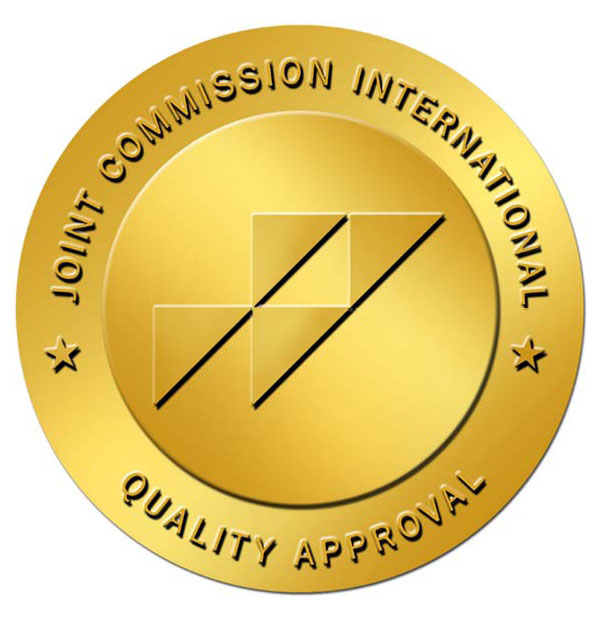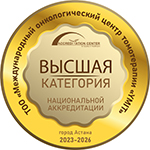Endoscopy (comes from the Greek endon - inside and skopeo - to look at, explore) is a method for examining internal organs using lighting and optical systems - endoscopes. This method is widely used for diagnostic and therapeutic purposes in surgery, gastroenterology, pulmonology, otorhinolaryngology and other areas of medicine. The method involves the insertion of a special tube with an optical system and illumination into the lumen of hollow organs. This allows to examine the walls from the inside with amplification, as well as perform minor procedures: take a biopsy, remove a foreign body, excise a polyp, etc.
In the Endoscopy Department of the “Umit” center, you can undergo endoscopy of the esophagus and stomach, intestines and bronchi, as well as other examinations on a fee basis. The examination is performed by experienced doctors using modern equipment that provides high-definition images. Based on the results, you will receive a detailed conclusion, as well as, if necessary, a video recording of the examination, which you can show to your doctor. For those who wish to minimize discomfort, we offer a sedation using safe drugs for a short-term anesthesia.
Endoscopy with sedation
In our Center, all endoscopic examinations (both diagnostic and surgical) are performed under the most comfortable conditions of sedation - a 10-minute drug-induced sleep using special preparations. Endoscopy with sedation is performed under the control of an anesthesiologist, who carries out an individual selection of the drug and its intravenous administration.
During the procedure patient sleeps without any unpleasant sensations, and after recovery immediately upon its completion, does not feel discomfort
This is how all types of endoscopic examinations and manipulations are performed in Europe, because when patient is calm and does not interfere with the examination, the doctor performs the necessary diagnostic complex as quickly, accurately and efficiently as possible.
Within half an hour after completion of the procedure, the patient can return to normal activities. The procedure involves directly the endoscopist, assistant and anesthesiologist.
Before the examination, the endoscopist talks with the patient, gets acquainted with his medical documentation, explains what additional procedures are planned to be performed during endoscopy. Then the anesthesiologist conducts an additional survey and examination of the patient. After introducing the patient into a state of short-term sleep, the endoscopist conducts an endoscopic examination and performs additional diagnostic and therapeutic manipulations.
Indications for endoscopy
The list of indications for endoscopic examinations is very extensive. They are used in case of:
- symptoms of mucous membrane lesions (pain, indigestion, cough, etc.)
- bleeding
- suspected benign or malignant tumors
- suspected foreign bodies
- need to take a biopsy and other samples that cannot be taken otherwise
- minor procedures (excision of polyps, removal of foreign bodies), etc.
- preventive measures.
The range of indications for endoscopic surgery is very wide. Every year their number only increases due to the improvement of equipment and the growth in experience of doctors.
Therapeutic manipulations during endoscopy
The options of modern endoscopes allow not only high-quality diagnostics, but also a wide range of therapeutic manipulations:
- endoscopic removal of neoplasms (polyps, adenomas, etc., followed by biopsy) from the esophagus, stomach, small and large intestines, ENT organs, trachea and bronchi;
- ligation and sclerotherapy of the stomach and esophagus veins, control of bleeding from various parts of the gastrointestinal tract;
- irrigation and injection of medications;
- removal of foreign bodies and many other medical procedures.
Preparation for endoscopy
Before the appointment of the procedure, it is required to undergo an examination by a specialized doctor with the issuance of a referral. If you do not have a referral when you contact the clinic, you can make an appointment with a doctor to get it.
- ECG. For patients with cardiovascular system diseases, as well as patients over 50 years (especially for examination with sedation), it is advisable to undergo ECG or have data from a previously performed ECG (no later than 1 month).
- Complete blood count. Presence of a number of diseases in patient (coagulopathy, thrombocytopenia or portal hypertension) requires special attention during the diagnosis. The results of the blood test will be taken into account by the doctor during endoscopy
- Tests for infectious diseases. Tests for HIV, hepatitis and syphilis are standard during minimally invasive procedures (including endoscopy), before surgery and hospitalization
The above mentioned examinations are advisory in nature and aimed at identifying contraindications and ensuring maximum safety during endoscopic examinations. All examinations specified above can be made in our center.
Depending on the type of examination, the patient will need to keep a diet and/or relax the bowels.







 public offer
public offer










